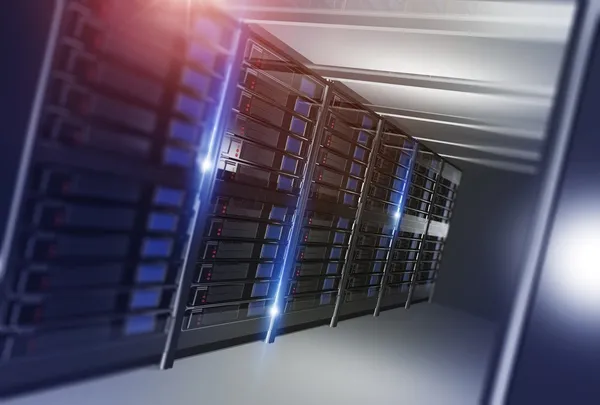The Ultimate Guide to Saving Money on Dedicated Server Hosting

When it comes to running a website or online business, dedicated server hosting is often the preferred choice for businesses with large or complex websites, but its cost can be prohibitive for many businesses. This ultimate guide will explore the various ways you can save money on dedicated server hosting without sacrificing quality and performance.
Choose a Cheap Dedicated Server
When it comes to dedicated hosting, choosing a cheap dedicated server can help save you money. A dedicated server is a type of internet hosting solution that allows businesses to rent their own server for their websites and applications. This type of hosting offers more control and flexibility than shared hosting, as the server is dedicated solely to the business that rents it. Dedicated hosting is usually more expensive than shared hosting but with a cheap dedicated server, you can get a lot of the same features and benefits at an affordable price.
When selecting a cheap dedicated server provider, it is important to look at several factors. First, it is important to determine what kind of support the provider offers. Look for a provider that offers 24/7 technical support and a range of features that can help you manage your server more efficiently. Make sure that the provider has a good reputation and is experienced in hosting dedicated servers.
Ensure that the server will have the necessary hardware and software to meet your needs. Look for providers that offer additional features such as backup and disaster recovery services, as well as managed hosting options.
Optimize Your Server Configuration
In an age where web hosting costs are constantly rising, it is important for businesses to find ways to optimize their server configuration in order to save money on dedicated server hosting. By optimizing the server configuration, businesses can reduce their costs while still providing a fast and reliable hosting solution.
The first step in optimizing a server configuration is to understand the current configuration. A server administrator should review the current hardware, software, and network configuration to identify any areas where improvements can be made. This review should include an analysis of the current hardware and software requirements, as well as an assessment of the current network topology.
Once the current configuration is understood, the server administrator can begin to make changes to optimize the server configuration. These changes can include upgrading hardware and software, optimizing software settings, and reconfiguring the network topology.
Hardware upgrades can make a significant difference in the performance and cost of a dedicated server hosting solution. By upgrading to higher-performance hardware, businesses can reduce their hosting costs while still providing a reliable hosting solution. Additionally, hardware upgrades can improve the server’s ability to handle more users and complex applications.
Software optimization can also help reduce the cost of dedicated server hosting. By optimizing software settings, such as memory and processor utilization, businesses can reduce their hosting costs while still providing a reliable hosting solution. Additionally, software optimization can improve the server’s ability to handle more users and complex applications.
Finally, the network topology should be reviewed to identify any areas where improvements can be made. This includes analyzing the current routing, switching, and firewall configurations to ensure that the server is configured correctly and securely. Additionally, the network topology should be optimized to reduce latency and improve performance.
Consider Colocation
By taking advantage of a colocation provider’s services, companies can save money on expensive hardware purchases, power, and cooling costs, while still having access to the same resources and capabilities as a dedicated server.
When considering colocation to save money on dedicated server hosting, there are a few key factors to take into account. First, you must determine the type of server hardware you need for your application and the amount of power and cooling you will require. Once you have these requirements established, you can shop around for the best colocation provider that meets your needs.
Once you have selected a colocation provider, you will need to have your server hardware shipped to their data center. The provider will then install and configure the hardware, giving you access to the resources and capabilities of a dedicated server. You will then have the ability to manage your server remotely, giving you more control over your hosting.
Budget for Upgrades
It is important to budget for server upgrades to ensure that your dedicated server continues to meet your needs as your website or online business grows. However, upgrading to newer hardware or software can be expensive. To save money, consider upgrading only the components that are most critical to your performance, or look for used or refurbished hardware that can still provide the performance you need at a lower cost.
Upgrading the hardware can help you get more performance out of your server and can also help you save on hosting costs. Most dedicated server hosting companies offer a range of hardware upgrades, from RAM to storage, that can help you get the most out of your server.
Upgrading to the latest version of the software can improve the performance of the server and reduce the amount of time and resources needed to run the server. Additionally, businesses should keep their server operating systems and applications up-to-date to ensure they are secure and running efficiently.
Upgrading the network infrastructure can improve the speed and reliability of the server and reduce the amount of time and resources needed to run the server. Additionally, businesses should consider using a managed service provider to manage their network and server infrastructure. This will reduce the amount of time and resources required to manage the server, resulting in cost savings.
Finally, businesses should consider upgrading their security infrastructure to save money on dedicated server hosting. Implementing the latest security measures can help protect the server from malicious attacks, reducing the amount of time and resources needed to run the server. Additionally, businesses should consider using a managed security service provider to manage their security infrastructure. This will reduce the amount of time and resources required to manage the server, resulting in cost savings.
Monitor Your Resource Usage
When it comes to dedicated hosting, it is important to monitor your resource usage in order to stay within your budget. By keeping track of your resource usage, you can make sure that you are not wasting money on resources that you do not need and that you are not overpaying for resources that you do need.
For instance, if you have a website that requires a large amount of storage and bandwidth, then you should monitor your resource usage to make sure that you are not overpaying for storage space and bandwidth that you are not using. Likewise, if your website traffic is relatively low, then you should monitor your resource usage to make sure that you are not paying for server resources that you are not using.
Another important factor to consider when monitoring your resource usage is to see if you are taking advantage of all the features that are included with your dedicated hosting plan. Many hosting plans include features such as automatic backups, SSL certificates, and DDoS protection. If you are not utilizing these features, then it may be costing you money that could be better spent elsewhere.
Finally, it is important to keep an eye on your resource usage to make sure that you are not exceeding your allocated resources. If your website is receiving a large amount of traffic, then it may be necessary to upgrade your hosting plan to ensure that your website can handle the increased traffic. If you are not monitoring your resource usage, then you may be overpaying for resources that you are not using.
By monitoring your resource usage, you can help to ensure that you are not wasting money on resources that you do not need and that you are not overpaying for resources that you do need.




